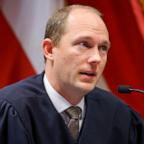Study: Prozac Effective in Treating Teen Depression
June 2, 2004 -- The concept of using medications to treat depressed children has long been controversial. Each year, at least one million Americans under the age of 18 are prescribed antidepressants such as Prozac, but there has been no conclusive evidence that they are effective.
Now a study funded by the National Institute of Mental Health and reported in The New York Times finds Prozac is indeed effective and much better than talking to a therapist.
The results of the study should reassure many depressed teenagers and their parents. It should also reassure the doctors prescribing Prozac.
"Most importantly, it came out with an answer," said Dr. Harold Koplewicz, a psychiatrist who heads the New York University Child Study Center and was not involved in the research. "This was an effective treatment. Medication actually can work in treating teenagers who have depression."
This latest research, which has yet to be peer-reviewed, is the first large study to compare a daily dose of Prozac — the most common antidepressant — with psychotherapy, or "talk therapy," in which a patient discusses problems with a therapist.
The results were presented to a meeting of psychiatric drug researchers meeting in Phoenix, and reported on the front page of today's New York Times.
More than 370 depressed teenagers, between 12 and 17 years of age, completed the study.
After three months, researchers reportedly found that just taking a placebo or "dummy pill" helped lessen depression in 35 percent of patients, while talk therapy was only marginally better, helping 43 percent of patients.
Researchers also determined that for those on Prozac, the number climbed to 61 percent of the teens who were helped. But the most effective approach, according to the report, was the combination of Prozac and talk therapy, which helped 71 percent of patients.
"The medication is addressing the chemical imbalances in the brain while the psychotherapy is addressing the behavior and the thoughts," said Dr. Timothy Wilens, a child psychiatrist at Massachusetts General Hospital, who reviewed some of the preliminary results for ABC News.




